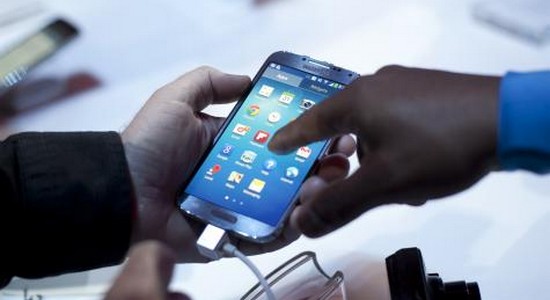[ad_1]

Entitled "Reforming the Taxation of Mobile Telephony in the Democratic Republic of Congo to Support Economic Growth through a More Favorable Tax Framework", the paper highlights that mobile telephony accounts for approximately 20% of the country's total tax revenue, while that it represents barely 3.6% of gross domestic product (GDP). According to its authors, this means that the total tax contribution of the sector is almost six times higher than the weight of the sector in GDP. For 2016, continues the text, the total tax contribution of the sector is estimated at 358 million US dollars, which represents 31% of the turnover of the sector. "This tax burden is the highest in a sample of African countries, including Nigeria (9%), South Africa (20%), Rwanda (21%) and Senegal (22%). ). Sector-specific taxes, including the excise tax on telecommunication services, account for one-fifth of this tax burden "according to the report.
Faced with this situation, the authors are convinced that, thanks to the DRC government has the opportunity to simplify and rebalance the taxation of the mobile phone sector to support its national development goals. In this regard, it is recalled, the country's economy is currently developing rapidly, with an average growth rate of 6% per year from 2012 to 2017. This rate is among the highest in Africa and is well above the continent average (3.4%). But the country remains highly dependent on the mining sector as a driver of economic growth. The sector's share of GDP has thus risen from 6% in 2002 to 19% in 2014.9 This makes the DRC vulnerable to fluctuations in commodity markets. "The government therefore needs to aim for greater economic diversification and the economy will also need significant structural reforms and significant investments in infrastructure to generate sustainable growth."
In doing so, the report believes that mobile telephony is likely to play an important role in achieving the country's economic objectives, by improving access to information, developing human capital and creating new business opportunities. The improvement of 3G penetration would also allow that of Internet access of inhabitants, of which only 6.2% of the country declared to use the Internet in 2016. "To release the important socio-economic benefits of mobile telephony , the government has the possibility to take measures that would improve the operating conditions of mobile operators, including tax reforms likely to improve the financial accessibility of mobile technologies for consumers ", reads in the text.
Three Options for Reform

The authors of the report believe that the tax reform of the sector would lead to a considerable increase in the penetration and use of mobile services in the low-income population. This growth, it is argued, is also likely to increase the government's GDP and tax revenues in the medium term. To encourage further growth of the sector and the economy as a whole, suggests the paper, three tax reform options would increase mobile penetration and average usage per subscriber, which would lead to increase in GDP and tax revenues: the 10 to 3 per cent reduction in the excise tax on mobile services; the reduction from $ 0.45 to $ 0.225 of the per-number dialing fee that would reduce the cost of assigning telephone numbers to consumers and thus the barriers to access to mobile services and would reduce the distorting effects of taxes and rights specific to the sector, would facilitate the abolition of the turnover tax of electronic money institutions (tax removed in the 2018 budget law).
This tax reform, it is explained, will reduce the the cost of mobile money transfers and will therefore benefit DRC residents previously excluded from financial products and services (in rural areas, for example). "The greater accessibility of mobile money services will lead to greater financial inclusion and develop the formal economy for other measures, including fiscal. The benefits of this tax reform have been modeled to illustrate the positive impact this government decision should have and guide future policies in this area ", states the document.
] Societal benefits

The growth of the mobile phone sector, the report believes, would also have broader societal benefits, by facilitating access to broadband and mobile data, especially in lower-income rural communities, because in each scenario, over 70% of new subscribers come from low-income categories. "The increase in mobile penetration should also lead to an increase in productivity throughout the economy and therefore to an increase in GDP, household income, employment and employment. investment, predict the authors of the report, convinced that all these reforms should, in addition, be self-financing in terms of impact on tax revenues in the medium term, the growth of the sector and the whole of the economy leading to increased tax revenues after the second year (2020).
[ad_2]
Source link